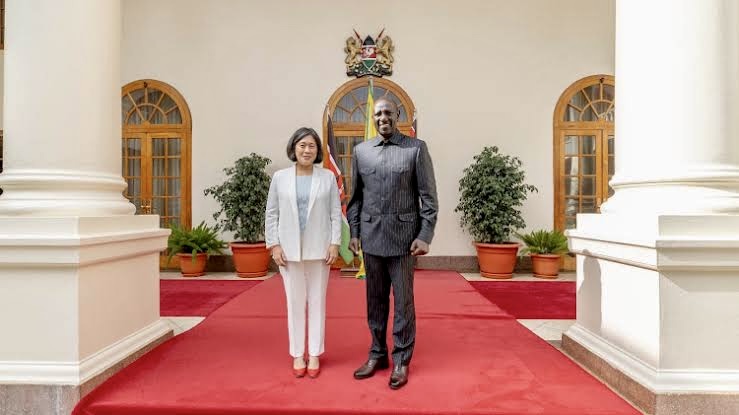
Faith Nyasuguta
The United States of America has flagged rampant bribe requests and extortion of U.S. firms by Kenyan government officials to secure tenders, as outlined in the 2024 National Trade Estimate Report on Foreign Trade Barriers released on March 29 by U.S. Trade Representative Ambassador Katherine Tai.
This revelation sheds light on the challenges faced by American companies in bidding for Kenyan government tenders, with corruption being a significant concern.
According to the report, U.S. firms have had limited success in securing Kenyan government tenders, with many of these tenders facing legal challenges in the courts. The report also highlights instances where foreign firms, some lacking a proven track record, have managed to win government contracts by partnering with well-connected Kenyan entities.
U.S. Trade Representative Katherine Tai expressed concerns about the Kenyan government’s procurement system, particularly the Integrated Financial Management Information System (IFMIS), citing insufficient connectivity and technical capacity in county government offices.
American companies have described Kenyan county government officials as apathetic, and there are concerns about central control shutdowns and security vulnerabilities in IFMIS, making it susceptible to manipulation and hacking.

Corruption remains a significant barrier to doing business in Kenya, with U.S. firms routinely reporting direct requests for bribes from various levels of the Kenyan Government. The report underscores the need for Kenya to effectively implement its anti-corruption laws to address these challenges.
In addition to corruption concerns, American companies have raised issues with the customs clearance process in Kenya. Despite the implementation of a single window system, there are concerns about the time required for customs clearance and the complexity of the process, which involves multiple uncoordinated offices.
Many U.S. companies have criticized Kenya’s one-stop customs clearance system for not operating as intended and have highlighted the ineffectiveness of pre-arrival processing of electronic documents.
Furthermore, the report outlines challenges related to Kenya’s import regulations for meat, dairy, and poultry products. Importers are required to obtain a no-objection letter from the Directorate of Veterinary Services (DVS), which has been accused of providing unjustifiable reasons for permit denials.
Importers have also raised concerns about inconsistent application of classification and valuation decisions, as well as unnecessary transit inspections.

Regarding dispute resolution mechanisms, the report highlights delays and uncertainties in the Kenyan Judiciary’s resolution of disputes related to tariffs and taxation.
While the Kenya Revenue Authority (KRA) has offered alternative dispute resolution mechanisms since June 2015, U.S. companies have expressed concerns about the slow resolution of tax disputes through these mechanisms. The backlog of cases and continued corruption undermine the credibility and effectiveness of the judicial system in Kenya.
The United States government urges Kenya to address these challenges to improve the business environment and promote transparency and accountability in government procurement and judicial processes.
Efforts to combat corruption and streamline customs clearance procedures will be crucial in attracting foreign investment and fostering economic growth in Kenya.
RELATED:




